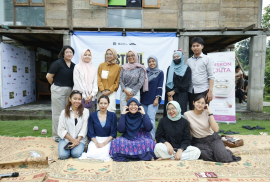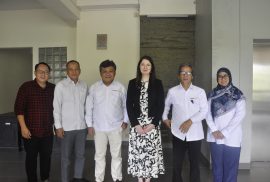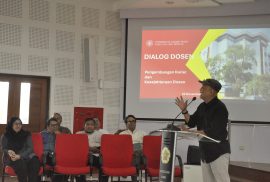Sunday, 10th March 2024 – Students of the Faculty of Cultural Science, currently in an internship program at Buku Mojok publishing company, became the moderator for Festival Penulis Perempuan to celebrate International Women’s day. The event, initiated by Buku Mojok, was held in three days on the 8th, 9th, and 10th of March at Akademi Bahagia. On the lasy day of the event, Buku Mojok invited Ranting Mangga to lead the journaling workshop and Isnaniar to lead the meditation workshop. This event is in line with the 5th SDGs, gender equality.
The event started at 1PM with the journaling workshop by Ranting Mangga. The participants was encouraged to write and paste scraps paper pieces in their journal as they like. After that, the event was followed with the meditation workshop. Isnaniar invited the participants to meditate by walking on the grass around their meeting area. On this event, student interns also participated in the workshop and helped the staff from Buku Mojok to prepare the event.
[Humas FIB UGM, Author: Catharina Maida Muhamartha, Editor: Rifal Fadlurrahman]






